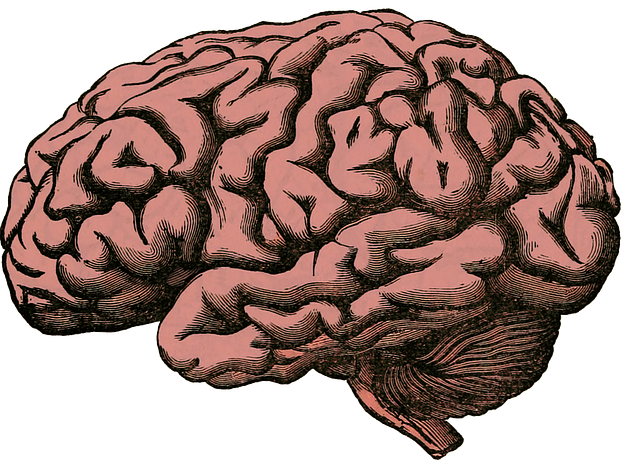Mental health advocacy initiatives, centered around Golden Mental Health Evaluations and Therapy, significantly boost awareness and understanding of psychological conditions. These evaluations provide personalized diagnoses and treatment plans integrating evidence-based practices for emotional regulation, coping skills development, and anxiety relief. Through community engagement strategies like leveraging social media, local events, school, and workplace partnerships, these initiatives normalize conversations about mental health, break down stigma, and equip individuals with self-care tools like Mindfulness Meditation and Mental Wellness Journaling Exercises. Robust evaluation methods, including Golden Mental Health Evaluations, measure improvements in awareness, access to therapy, and shifts in attitudes towards mental well-being.
Mental health advocacy plays a pivotal role in fostering inclusive societies. This article delves into key initiatives transforming mental healthcare, focusing on Golden Mental Health Evaluations as a cornerstone for targeted support and therapy. We explore effective strategies to build community awareness and educate diverse populations. Additionally, we examine assessment methods to measure the impact of these initiatives, highlighting successful advocacy efforts that emphasize accessible, compassionate care through therapy-driven approaches.
- Understanding Mental Health Advocacy: The Role of Golden Mental Health Evaluations
- Therapy as a Cornerstone for Advocacy: Unlocking Supportive Care
- Building Awareness: Strategies to Reach and Educate Communities
- Measuring Impact: Assessing the Success of Mental Health Advocacy Initiatives
Understanding Mental Health Advocacy: The Role of Golden Mental Health Evaluations

Mental health advocacy initiatives play a crucial role in promoting awareness and understanding of various psychological conditions. At the heart of this advocacy lies the concept of Golden Mental Health Evaluations—comprehensive therapy sessions designed to offer insightful diagnoses and personalized treatment plans. These evaluations go beyond mere assessment by integrating evidence-based practices aimed at emotional regulation, coping skills development, and anxiety relief.
By facilitating these evaluations, mental health advocates empower individuals to take charge of their well-being. Through a nurturing environment, they encourage clients to explore and express their feelings, thus fostering a deeper understanding of themselves. This process is instrumental in breaking down the stigma surrounding mental health issues, as it normalizes conversations about emotional challenges and paves the way for more effective coping strategies.
Therapy as a Cornerstone for Advocacy: Unlocking Supportive Care

Therapy serves as a cornerstone for mental health advocacy, providing an essential foundation of supportive care. Through Golden Mental Health Evaluations, individuals gain access to specialized therapy services tailored to their unique needs. This includes evidence-based practices aimed at addressing specific mental health concerns while fostering emotional intelligence and resilience. By prioritizing therapy, we empower people to navigate their emotional well-being and advocate for themselves in various aspects of life.
Moreover, Healthcare Provider Cultural Competency Training plays a crucial role in enhancing the therapeutic experience. Trained professionals equipped with these skills create safe spaces that honor diversity and promote understanding. This ensures that every individual receives culturally sensitive care, fostering trust and encouraging open communication. Integrating Emotional Well-being Promotion Techniques within therapy sessions further benefits clients by teaching them practical strategies to manage stress, improve coping mechanisms, and enhance overall emotional intelligence.
Building Awareness: Strategies to Reach and Educate Communities

Mental health advocacy initiatives focus on raising awareness and breaking down stigmas through targeted strategies. One effective approach is to leverage community engagement, utilizing various channels like social media, local events, and partnerships with schools and workplaces. By hosting informational sessions, workshops, and offering resources such as Golden Mental Health Evaluations and Therapy, organizations can reach a wide audience. These efforts aim to educate people on recognizing mental health issues and providing them with tools for self-care, including Mindfulness Meditation, Inner Strength Development, and Mental Wellness Journaling Exercises.
Community-based interventions play a pivotal role in normalizing conversations around mental wellness. Through collaborative partnerships, advocacy groups can ensure that mental health resources are accessible to diverse populations, catering to unique cultural and social needs. This holistic approach not only empowers individuals but also fosters a supportive environment where everyone feels comfortable seeking help when needed.
Measuring Impact: Assessing the Success of Mental Health Advocacy Initiatives

Measuring the impact of mental health advocacy initiatives is a crucial step in understanding their effectiveness and ensuring they align with the needs of the community they serve. It involves assessing various aspects, from increases in awareness to improvements in access to therapy and positive shifts in attitudes towards mental well-being. By employing robust evaluation methods, including Golden Mental Health Evaluations, advocates can gain valuable insights into what works, what doesn’t, and where adjustments are needed.
This process should incorporate both qualitative and quantitative data collection techniques. Qualitative methods may include surveys, focus groups, and interviews to gather firsthand accounts of individuals’ experiences with mental health services. On the other hand, quantitative assessments, such as tracking therapy attendance rates and measuring improvements in symptoms using standardized tools, provide tangible metrics for success. By combining these approaches, advocates can gain a comprehensive understanding of the initiative’s impact, fostering continuous improvement guided by the Mind Over Matter principles and aiming to prevent burnout while enhancing emotional intelligence within affected communities.
Mental health advocacy initiatives, encompassing golden mental health evaluations, therapy as a cornerstone, community awareness building, and impact measurement, are vital strategies to foster supportive care and improve overall well-being. By integrating these approaches, we can unlock meaningful change, ensure accessible resources, and create a more inclusive environment for those seeking mental health support. Therapy, in particular, serves as a powerful tool for advocacy, enabling individuals to navigate their journeys with increased resilience and empowerment. Through concerted efforts, we can revolutionize mental healthcare, making it a vibrant and supportive landscape for all.












